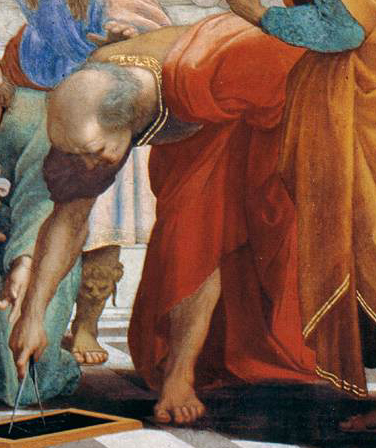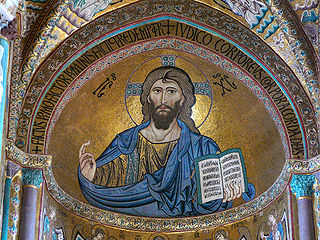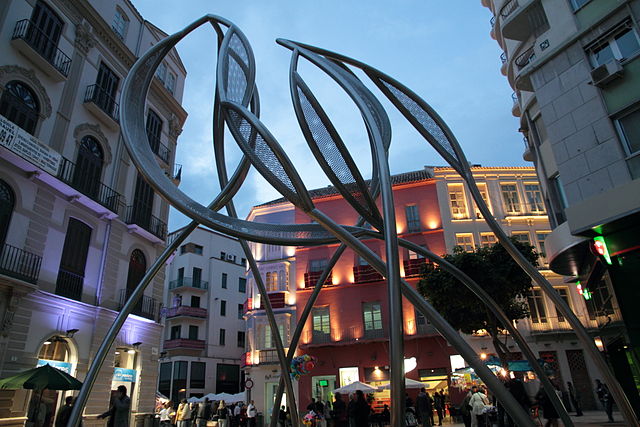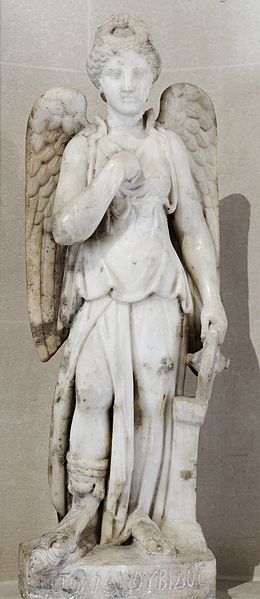inglés
HELENISMS IN CURRENT LANGUAGES
"EUREKA"
ENGLISH WORD: “eureka”.
CURRENT MEANING: regular expression that is used when someone achieves its objective or makes an important discovery.
ORIGIN: it is a Greek term incorporated into our language. Morphologically is the first singular person of the perfect of the verb εὑρίσκω "find". The history tells that the tyrant Hieron of Syracuse asked the mathematician Archimedes to check if a crown received as a gift was actually gold, because he suspected that they were cheating him. Archimedes turned the matter and didn't know how to do to find out, until one day, while was in the bathtub, he realized that the volume of water displaced was equal to the weight of the body submerged in it (famous Archimedes principle). Overjoyed because he had found a way to show whether the crown was gold or not, went naked through the streets of Syracuse exclaiming jubilantly: eureka, eureka "I found it, I have found it".

Arquimedes studies the geometry in a detail of the fresco A school of Athens. Rafael Sanzio. 1509. Vatican Museums.
"CHRIST PANTOCRATOR"
ENGLISH WORD: “Christ pantocrator“.
CURRENT MEANING: adjective which means "almighty”, “omnipotent", usually describing God and Christ. In Byzantine and Romanesque art with this term is designated the image that represents the Almighty. In this image are the Creator and the Redeemer in majestic position, with his right hand raised giving his blessing and the Sacred Books in the left hand. We can find the Pantocrator especially in the churches, both outside, carved in stone, and within the enclosure, painted on the vaults of the apse. Almost always are surrounded by a oval fence called mandorla.
ORIGIN: etymogically we have a Greek word formed by the prefix παντός “all” and a derivative of κράτος “power”, which comes from the verb κρατέω “have strength or power”. The term appears in the Book of Revelation of St. John and an occurrence of the Gospel of St. Paul.

Christ Pantocrator mosaic in Byzantine style from the Cefalù Cathedral, Sicily.
"MATAIOTES MATAIOTETOS KAI PANTA MATAIOTES"
ENGLISH WORD: “mataiotes mataiotetos kai panta mataiotes”.
CURRENT MEANING: it refers to a vain behaviour. It´s equivalent to the phrase "vanity of vanities, all is vanity". Many times we give importance to material things that, actually, do not, leaving aside others which would provide us more happiness. We don´t realize that we are mortal and want sometimes to overcome God.
ORIGIN: the Greek text appears in the biblical book Ecclesiastes. The term ματαιότης means "vanity”, “vacuity”, “illusion”, “fragility".

Maserati Gran Cabrio Sport. Fair of the engine of Frankfurt.
"PANTA REI"
ENGLISH WORD: “panta rei”.
CURRENT MEANING: everything flows.
ORIGIN: we owe the Greek expression πάντα ῥεῖ to Heraclitus, Greek philosopher known as the Dark. With this expression he wanted to say that everything evolves, that nothing remains, we could not bathe twice in the same river because it would no longer be the same river. With these ideas were opposed to another philosopher, Parmenides, who argued the opposite, that everything remained unchanging.

Sculpture in Málaga that symbolizes the Panta rei. Blanca Muñoz, 2008.
"MEDEN AGAN"
ENGLISH WORD: “meden agan”.
CURRENT MEANING: we must be moderate in life, excesses are not good.
ORIGIN: Greek expression formed by the neutral indefinite μηδέν "nothing" and the adverb ἄγαν "too much, much". The goddess Nemesis was worshipped by the Greeks and Romans as the guarantor of the right measure and if someone dared to exceed the measure and display the ὕβρις “anger”, “fury”, they were the victims of their anger and died struck. It´s equivalent to Latin expression ne quid nimis.
 Nemesis, Roman marble from Egypt, 2nd century AD (Louvre).
Nemesis, Roman marble from Egypt, 2nd century AD (Louvre).